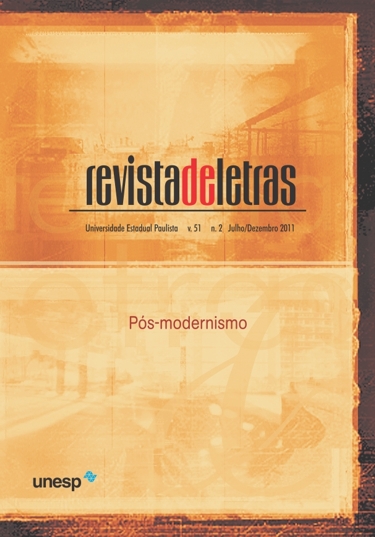The solitude of a castaway: Claudia Roquette-Pinto’s poetics in the gardens of Corola
Keywords:
Corola, Claudia Roquette-Pinto, Metalanguage, Garden,Abstract
The work Corola, by Claudia Roquette-Pinto (2000), introduces a consistent poetic project arising from the use of expressive metalinguistic resources and of its cohesive structure. Resorting to intratextuality promotes the unity and the metalinguistic reflections of the book’s 48 poems. The dialog with the literary tradition is simultaneous with the awareness of the enunciators that the poetry of Corola is intervallic and fissile. The initial 47 untitled poems build a strong relationship of continuity and revealing interdependence of a presence of a “theory” of the poetic creation based on misfortunes. The lyricism in Corola does not present marks of self-pity related to the castaway situation announced in the last poem of the work. The adjectives exhausted, torn, discredited ascribed to the poetic self, make it unfold into another, critical appreciator of their own poetic noises and a conscious hostage of an intermittent and lacunar time which favors the construction of a poetics of a patient wait for the rescue of the poetry and of the development into a reader-spectator of himself or herself and of the poetic text. We will analyze some metalinguistic procedures and compositional concerns announced by Corola’s poetic selves, as well as the recurrent figure of the garden as a poetic space.Downloads
Issue
Section
Postmodernism
License
Os manuscritos aceitos e publicados são de propriedade da Revista de Letras. Os originais deverão ser acompanhados de documentos de transferência de direitos autorais contendo assinatura dos autores.
É vedada a submissão integral ou parcial do manuscrito a qualquer outro periódico.
A responsabilidade do conteúdo dos artigos é exclusiva dos autores.
É vedada a tradução para outro idioma sem a autorização escrita do Editor ouvida a Comissão Editorial.

